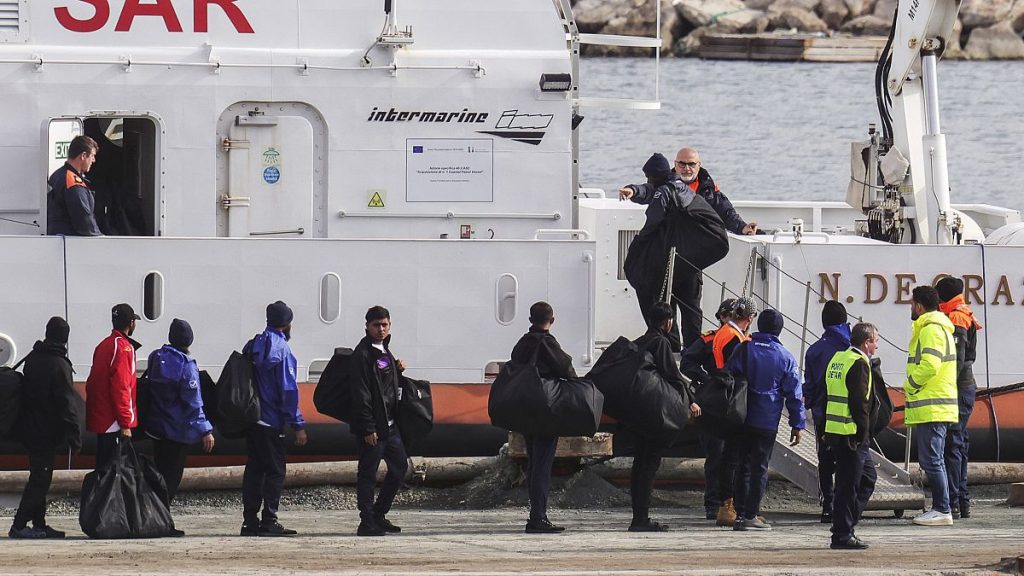Paragraph 1: Introduction to the EU’s Proposed Migrant Return Law
The European Commission is developing a new law aimed at accelerating the return of rejected asylum seekers. Leaked minutes from an informal meeting of EU home affairs representatives reveal the controversial proposal includes the establishment of "return hubs" outside the EU’s borders. These hubs would house rejected asylum seekers pending their return to their countries of origin. Austria’s migration commissioner, Magnus Brunner, championed the idea, arguing for stronger detention rules and exploring innovative approaches to migration management. The proposal is expected to be officially unveiled by the end of this month, initiating the legislative process within the European Parliament.
Paragraph 2: Divergent Views Among Member States
The return hubs concept has sparked a mixed reaction from EU member states. Austria, Bulgaria, Czech Republic, Denmark, Germany, Greece, Italy, Latvia, and Malta expressed support for the proposal, viewing it as a potential deterrent to irregular migration. However, countries like Portugal and Spain voiced legal and operational concerns. Ireland and Belgium emphasized the need for practical, workable measures that uphold fundamental rights. This divergence of opinions highlights the complexity of finding a unified approach to migration management within the EU.
Paragraph 3: Further Details of the Proposed Law and Frontex’s Role
Beyond the return hubs, the proposed law includes other measures to streamline the return process. Brunner advocated for clearer obligations for returnees to cooperate, with defined consequences for non-compliance. He also suggested strengthening rules for returnees deemed security threats and facilitating the mutual recognition of return decisions across member states. While several countries welcomed these proposals, France expressed opposition to the mutual recognition aspect. Meanwhile, several nations, including Spain, Portugal, Romania, Slovakia, and Iceland, called for an expanded role for Frontex, the EU border agency, in managing returns. Frontex expressed its willingness to contribute, provided it receives adequate resources.
Paragraph 4: Legal and Humanitarian Concerns Surrounding Return Hubs
The proposal to establish return hubs outside EU territory has drawn criticism from humanitarian organizations. They argue that such hubs risk creating prolonged detention and suffering for rejected asylum seekers. Existing EU law prohibits forced returns to countries with which a migrant has no connection. However, increasing political pressure to improve deportation rates has fueled a shift towards stricter migration policies in many member states, potentially overriding these legal and humanitarian concerns. The concept of return hubs has received support from high-ranking officials like European Commission President Ursula von der Leyen, who cited a migration protocol between Italy and Albania (itself facing legal challenges) as a potential model.
Paragraph 5: Addressing the "Weaponization of Migrants" and Asylum Rights
The informal meeting also addressed the instrumentalization of migrants by countries bordering the EU, specifically Russia and Belarus. Brunner reiterated the right of member states to take action against such "hostile actors," while stressing the importance of respecting international law and considering the impact on asylum seekers. Sweden suggested the possibility of suspending asylum regimes in extraordinary circumstances involving such hostile actions, mirroring similar initiatives by Finland and Poland. This reflects a growing trend of considering limitations on asylum rights in response to perceived threats from external actors.
Paragraph 6: Next Steps and Challenges Ahead
Following the Commission’s formal presentation of the return proposal, the legislative process, expected to last around two years, will commence. Brunner’s confirmation hearing revealed his alignment with the broader migration strategy outlined by President von der Leyen. He also committed to addressing the ongoing issue of internal border controls within the Schengen Area and supporting full membership for Romania and Bulgaria, despite Austria’s own controversial stance on these matters. However, the successful implementation of the New Pact for Migration and Asylum, which underpins these initiatives, faces significant challenges, with countries like Poland and Hungary openly rejecting its provisions. Brunner’s willingness to pursue legal action against non-compliant member states suggests a determined approach to enforcing the new rules, but the potential for internal divisions and legal battles looms large.










